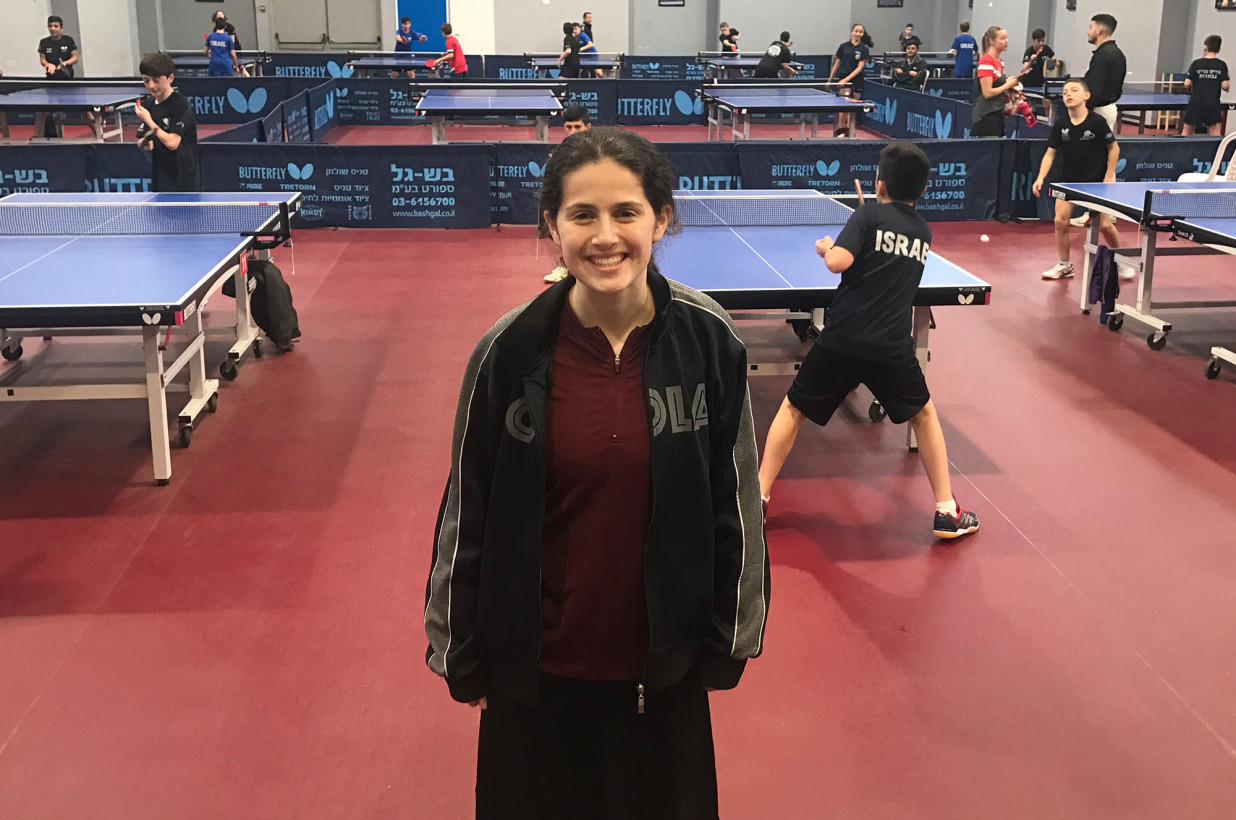In 1965, Dodgers ace Sandy Koufax refused to pitch the first game of the World Series. Why? The game fell on Yom Kippur, the holiest day of the year in Judaism. For Koufax, who is Jewish, this meant fasting and prayers, not throwing fastballs past players. Now, there is an orthodox Jewish teenager from Long Island who can definitely relate. Meet Estee Ackerman, 18, winner of the 2018 US Open women's hardbat championship. Despite her many accomplishments in the sport, Ackerman is not currently listed among active USA Table Tennis (USATT) players. Nonetheless, Ackerman has her sights set on the ultimate achievement in sport: the Olympics. "It would be a dream for me, " she says, "as the United States has never medaled [in table tennis]." This dream, however, has run into the cold reality of tournament logistics. Two US Olympic spots have already been awarded to Lily Zhang and Kanak Zha due to their lofty world rankings. This means the only way for Ackerman and any aspiring Olympians to make the team is through the 2020 US Olympic Team Trials this February 27-March 1 in Santa Monica College, California. The hitch for Ackerman is that her faith calls for her to fast on Shabbat, the Jewish Sabbath, and avoid any organized competition. This means that she would have to forfeit every match from sundown on Friday through Saturday, which would certainly doom her already remote chances. Ackerman, who is currently training in Israel, asked USATT to rearrange the tournament schedule to accommodate her. "When I inquired with the tournament referee they felt it wouldn’t be feasible to reschedule all the matches since we will be using a round robin with crossovers," said tournament director Sean O'Neill. "I’m confused why they won’t work with me,” said Ackerman. “I’m serious and dedicated. I enjoy the toughest of the toughest competition." The Anti-Defamation League (ADL) got involved, putting public pressure on USATT to rearrange the Olympic trials for Ackerman. "The rejection of Estee’s accommodation request is disrespectful of her faith and undermines the Olympic Trials being viewed as fair," wrote ADL CEO Jonathan Greenblatt. Of course, it would be ideal if Ackerman could compete in the trials. While obviously talented, she is not yet an Olympic-caliber player, and experience in these types of high-stakes tournaments are necessary steps to reaching that level. Even in the unlikely scenario where Ackerman makes this year's Olympic team, her inability to compete on the Sabbath would be an even greater hindrance for Team USA in the Olympics than it is on her in the trials. While there are no easy answers is the struggle between faith and sport, Ackerman herself defined her priorities in a 2018 interview. "Everyone needs values in life," she said, "with school number three, table tennis number two, and Judaism number one. I know that there is much, much more important things in life." Her father, Glenn Ackerman, also counsels perspective on the current disappointment. "We have absolutely no ill will to anyone at USATT and appreciate them at least thinking it over," he said. "I do understand that the tournament is not just about Estee,” he continued. “It’s about the 60 or 70 other competitors. If they can’t, they can’t. We’re never mad at them. We’re never upset at them. I know if they could, they would. I at least wanted to make an attempt." Estee Ackerman will no doubt continue to pursue her Olympic dream. With four years until the next Olympic trials, there is ample time to plan a more inclusive and flexible tournament format. There is, of course, one way for Ackerman to obviate the tedium of qualifying through the trials, and that is to surpass Lily Zhang and every other American woman in world ranking to secure an automatic Olympic bid. In the meantime, the Ackermans recognize that this year's effort was more than a tad quixotic. "In sports, you never know what happens,” said Glenn. "We want her to inspire others to live out their dream." Incidentally, Sandy Koufax went on to be named World Series MVP in 1965 after winning games 5 and 7. With faith, anything is possible.
More at New York Post
